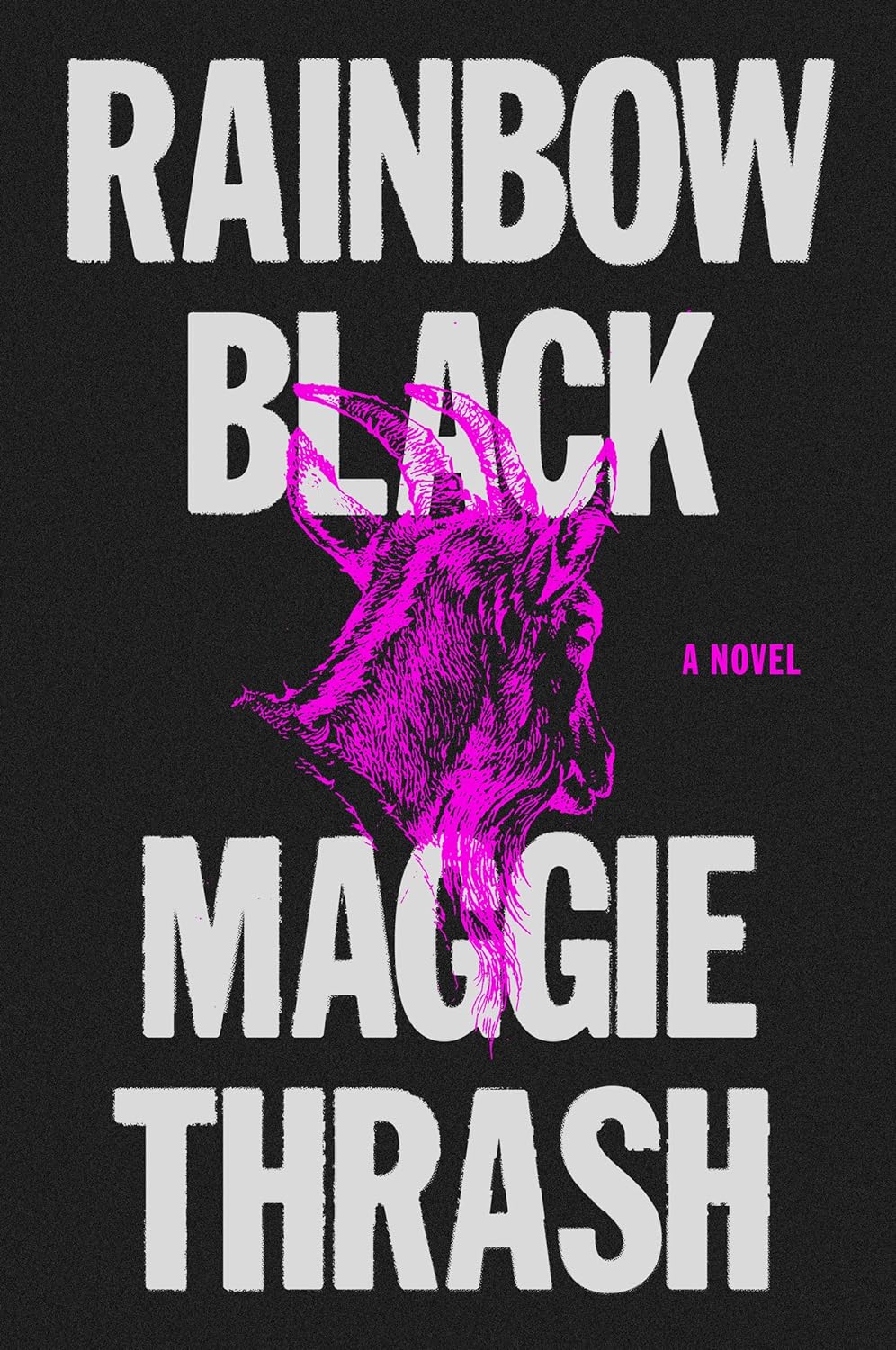Review of Rainbow Black by Maggie Thrash

Rainbow Black
Maggie Thrash
Harper Perennial, 2024, 416 pages
$18.99
Reviewed by Catherine Horowitz
Rainbow Black by Maggie Thrash is a riveting thriller that blends dark comedy, romance, and murder mystery. It is mostly set in the summer of 1990, when Lacey, a middle schooler living on a farm in New Hampshire, and her parents, who run a daycare from their home, become caught up in the Satanic Panic sweeping the nation. Her parents are arrested and accused of a number of fictionalized crimes, mostly Satanic child abuse rituals. As her family’s situation worsens inside and outside the courtroom, Lacey’s life spirals further out of control, pushing her to make decisions that will follow her far into the future.
Rainbow Black is wildly gripping and always entertaining despite its dark themes. As a reader, you know it’s not going to end well, largely because the book is told from a retrospective point of view, with narration from an older version of Lacey, who alludes to future events. Despite this looming sense of doom, Thrash always keeps you on the edge of your seat.
The book is often over-the-top and sometimes even absurd, mirroring the pulpy, mind-numbing entertainment that it often discusses. During the summer of their parents’ trial, Lacey and her older sister watch Days of Our Lives religiously, becoming increasingly drawn in as the plot becomes more and more ridiculous and outlandish. This provides a mind-numbing escape from the real world for them and mirrors their own lives, which are quickly becoming equally unbelievable.
This absurdity is why the book works, excessive as it may be. As Lacey watches fever dream-esque Kool-Aid commercials and thinks, “No wonder [her parents’ students] were having psychotic delusions,” newspapers write sensationalist headlines about her family that are equally outlandish. Her lawyer argues that the hedonism and consumerism of the late twentieth century, especially in the media, both make people’s lives worse and cause them to expect outrageous entertainment in real life, too. The book serves as another statement on entertainment and media and how they can blur the lines between authenticity and fiction.
Woven within the twists and turns of the book are the complex discussions of queer identity, sex, love, family, and other more serious topics. Perhaps, most importantly, it is a moving criticism of the American justice system, painting a picture that feels all too real of how it can hurt people by dragging them into false narratives.
At its core, Rainbow Black succeeds because its protagonist, Lacey, is a compelling character whose thoughts and feelings consistently feel vivid, earnest, and true. Despite knowing how things will end, you can’t help but hope for her to end up all right. The love story in the book’s second half also provides a surprising respite from its dark themes, ultimately becoming a central force that keeps its protagonists going. This all makes for an enthralling story that is, at its core, about love, relationships, and a quest to stay oneself in the midst of uncontrollable chaos.
Catherine Horowitz is a writer and teacher living in Washington, D.C. She earned a B.A. in English and Jewish Studies from Oberlin College. You can find her other work in Bright Wall/Dark Room, New Voices, and the Jewish Women’s Archive.
"Empowerment comes from ideas."
― Charlene Carruthers
"Your silence will not protect you."
— Tourmaline
"Gender is the poetry each of us makes out of the language we are taught."
— Leila Raven


